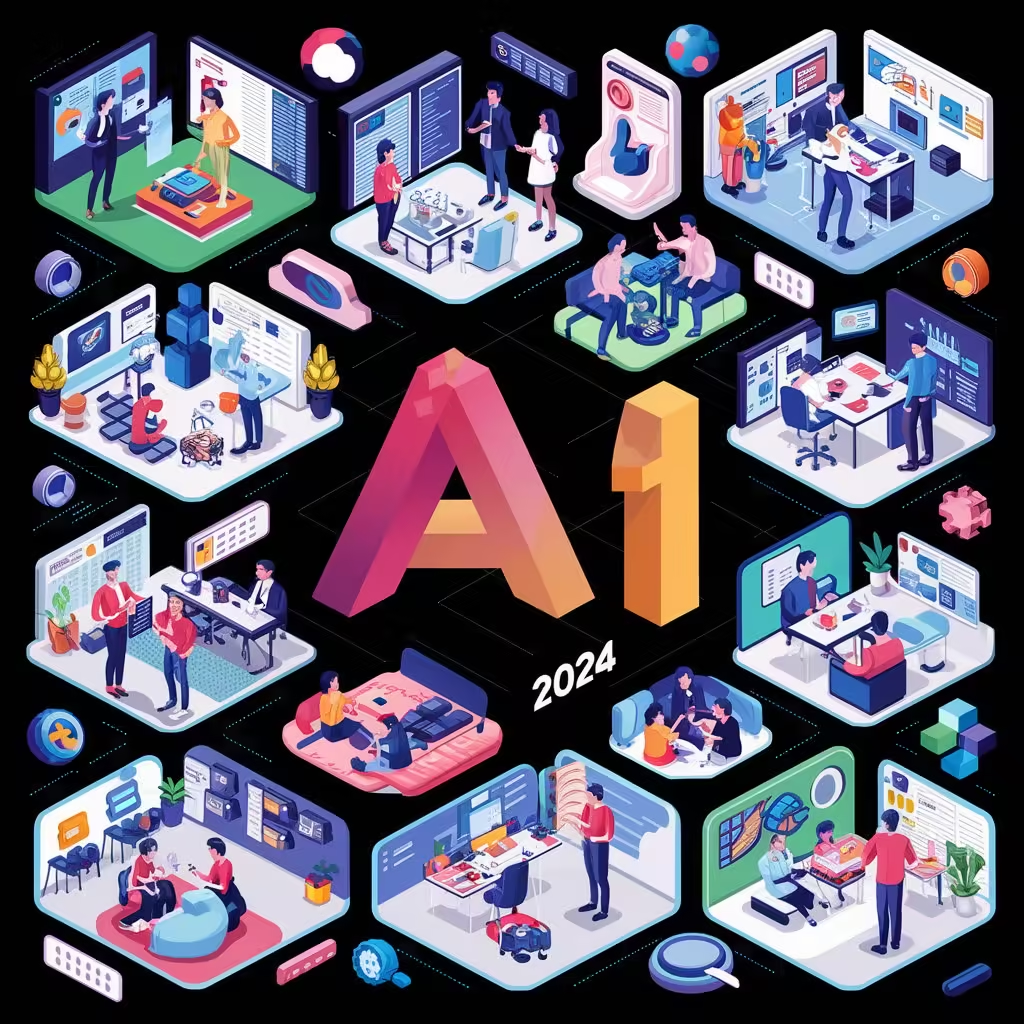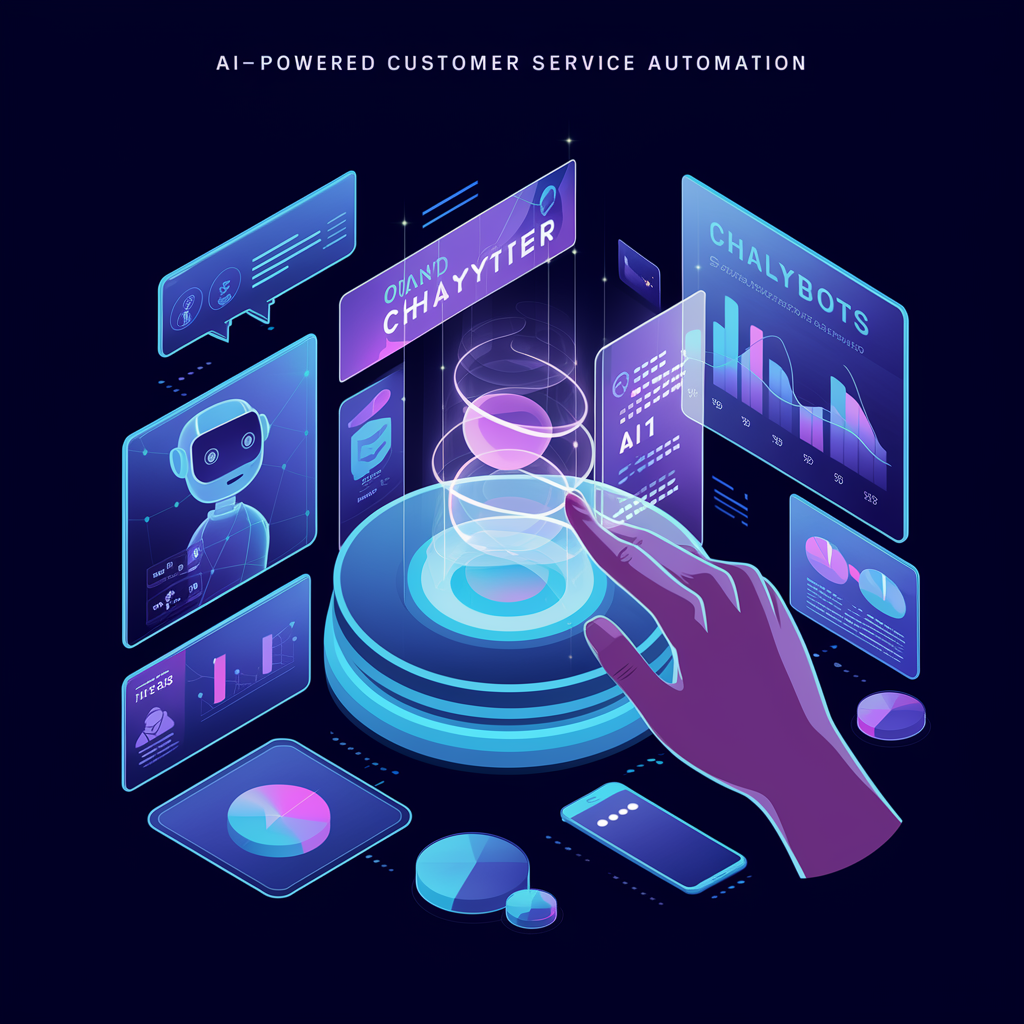Introduction: The AI Revolution in Small Business
In the ever-evolving landscape of business technology, artificial intelligence (AI) has emerged as a game-changer for companies of all sizes. While AI was once the domain of tech giants and multinational corporations, it has now become accessible and indispensable for small businesses looking to stay competitive in 2024 and beyond.
As a small business owner or entrepreneur, you might be wondering how AI tools can benefit your operations. The truth is, AI has the potential to revolutionize nearly every aspect of your business, from customer service to financial management. In this comprehensive guide, we’ll explore the top 10 AI tools that are reshaping the small business landscape and how you can leverage them to drive growth, efficiency, and innovation.
Understanding AI Tools for Small Businesses
Before we dive into specific tools, it’s crucial to understand what AI tools for small businesses actually are. At their core, these tools use machine learning algorithms and data analysis to automate tasks, provide insights, and enhance decision-making processes.
AI tools can:
- Automate repetitive tasks
- Analyze large volumes of data quickly
- Provide predictive insights
- Enhance customer interactions
- Optimize operations and resource allocation
The key benefit for small businesses is that AI tools can level the playing field, allowing them to compete with larger corporations by improving efficiency and providing sophisticated capabilities at a fraction of the cost of traditional solutions.
3.1 Customer Service: Chatbots and Virtual Assistants
One of the most visible applications of AI in small businesses is in customer service. AI-powered chatbots and virtual assistants can handle a significant portion of customer inquiries, providing instant responses 24/7.
Tool Spotlight: Intercom Intercom’s AI-powered chatbot can handle common customer questions, route complex issues to human agents, and even help with lead qualification. According to a study by Juniper Research, chatbots are expected to save businesses $8 billion annually by 2025 (Juniper Research, 2021).
Implementation Tip: Start with a small set of frequently asked questions and gradually expand your chatbot’s capabilities based on customer interactions.
3.2 Marketing: AI-Powered Content Creation and Analytics
AI is transforming marketing by automating content creation and providing deep insights into customer behavior and campaign performance.
Tool Spotlight: Jasper Jasper uses AI to generate marketing copy, blog posts, and social media content. It can help small businesses maintain a consistent content strategy without the need for a large marketing team.
Tool Spotlight: Google Analytics 4 While not exclusively an AI tool, Google Analytics 4 incorporates machine learning to provide predictive metrics and audience insights that can significantly enhance your marketing strategies.
Implementation Tip: Use AI-generated content as a starting point, but always review and refine it to ensure it aligns with your brand voice and messaging.
3.3 Sales: Predictive Analytics and Lead Scoring
AI tools can analyze customer data to predict sales trends and identify the most promising leads, allowing sales teams to focus their efforts more effectively.
Tool Spotlight: Salesforce Einstein Salesforce Einstein is an AI layer that sits on top of the Salesforce CRM, providing predictive lead scoring, opportunity insights, and automated activity capture.
Implementation Tip: Start by clearly defining what constitutes a quality lead for your business, then use AI to refine your criteria over time based on actual conversion data.
3.4 Finance: Automated Bookkeeping and Fraud Detection
AI is revolutionizing financial management for small businesses by automating routine tasks and enhancing security.
Tool Spotlight: QuickBooks with AI-powered features QuickBooks now incorporates AI to automate expense categorization, reconcile accounts, and provide cash flow forecasts.
Tool Spotlight: Stripe Radar Stripe Radar uses machine learning to detect and prevent fraud in real-time, adapting to new threats as they emerge.
Implementation Tip: Regularly review AI-generated financial reports and forecasts to ensure they align with your business reality and to catch any anomalies early.
3.5 Human Resources: AI-Driven Recruitment and Employee Management
AI tools can streamline the hiring process and help manage employee performance and engagement.
Tool Spotlight: Ideal Ideal uses AI to screen resumes, shortlist candidates, and even conduct initial interviews, significantly reducing time-to-hire.
Implementation Tip: Use AI as a complement to, not a replacement for, human judgment in hiring decisions. AI can help identify promising candidates, but final decisions should involve human interaction.
3.6 Operations: Process Automation and Optimization
AI can identify inefficiencies in business processes and suggest or implement improvements.
Tool Spotlight: UiPath UiPath offers robotic process automation (RPA) with AI capabilities, allowing small businesses to automate repetitive tasks across various applications.
Implementation Tip: Start by identifying the most time-consuming repetitive tasks in your business and prioritize these for automation.
3.7 Data Analysis: Business Intelligence Tools
AI-powered business intelligence tools can help small businesses make sense of their data and derive actionable insights.
Tool Spotlight: Microsoft Power BI Power BI uses AI to provide natural language queries, automated insights, and predictive analytics, making data analysis accessible to non-technical users.
Implementation Tip: Focus on defining clear business questions you want to answer with your data before implementing a BI tool.
3.8 Cybersecurity: AI-Enhanced Protection
As cyber threats become more sophisticated, AI is playing a crucial role in protecting small businesses from attacks.
Tool Spotlight: Darktrace Darktrace uses AI to detect and respond to cyber threats in real-time, learning and adapting to your business’s normal patterns of behavior.
Implementation Tip: Combine AI-powered security tools with employee education on cybersecurity best practices for comprehensive protection.
3.9 Product Development: AI-Assisted Design and Testing
AI tools can accelerate product development cycles and improve product quality through predictive modeling and automated testing.
Tool Spotlight: Autodesk Fusion 360 Fusion 360 incorporates AI to optimize designs for manufacturing, predict potential failures, and suggest improvements.
Implementation Tip: Use AI-assisted design tools to explore a wider range of design possibilities, but always validate AI suggestions against real-world constraints and user needs.
3.10 Customer Experience: Personalization Engines
AI can help small businesses provide personalized experiences at scale, improving customer satisfaction and loyalty.
Tool Spotlight: Dynamic Yield Dynamic Yield uses AI to personalize website content, product recommendations, and email campaigns based on individual user behavior and preferences.
Implementation Tip: Start with simple personalization elements, such as product recommendations, and gradually expand to more complex personalization strategies as you gather more data.
Implementing AI Tools in Your Small Business
While the benefits of AI tools are clear, implementing them effectively requires careful planning and execution. Here are some key steps to consider:
- Assess Your Needs: Identify the specific challenges in your business that AI could address.
- Start Small: Begin with one or two AI tools that can have the most immediate impact.
- Invest in Data Infrastructure: Ensure you have systems in place to collect and manage the data that AI tools rely on.
- Train Your Team: Provide training to ensure your employees can effectively use and benefit from AI tools.
- Monitor and Iterate: Regularly assess the performance of your AI tools and be prepared to make adjustments.
Overcoming Challenges and Ethical Considerations
While AI offers tremendous benefits, it’s important to be aware of potential challenges:
- Data Privacy: Ensure that your use of AI complies with data protection regulations like GDPR.
- Bias: Be aware that AI systems can perpetuate or amplify biases present in their training data.
- Transparency: Maintain transparency with customers about how you’re using AI, especially in customer-facing applications.
- Job Displacement: Consider the impact of AI automation on your workforce and plan for reskilling or role transitions where necessary.
The Future of AI in Small Business
As AI technology continues to evolve, we can expect even more powerful and accessible tools for small businesses. Some trends to watch include:
- Increased Accessibility: AI tools will become even more user-friendly and affordable for small businesses.
- Integration: We’ll see greater integration of AI across different business tools and platforms.
- Specialized AI: More AI tools tailored to specific industries and business functions will emerge.
- Explainable AI: As AI becomes more prevalent, there will be a greater focus on making AI decision-making processes more transparent and explainable.
Conclusion: Embracing the AI Advantage
The adoption of AI tools is no longer a luxury for small businesses—it’s becoming a necessity to remain competitive in an increasingly digital marketplace. By strategically implementing AI tools across various business functions, small businesses can enhance efficiency, improve decision-making, and provide better customer experiences.
As you explore the AI tools mentioned in this guide, remember that the key to success lies not just in the technology itself, but in how well you integrate it into your business processes and culture. Start small, focus on clear objectives, and be prepared to adapt as you learn.
The AI revolution is here, and small businesses that embrace it wisely stand to gain a significant competitive advantage. Are you ready to take your business to the next level with AI?
AIInDepth.com: Your go-to source for insights and trends in AI and technology.




